
Insights
Drag Is a Powerful Avenue for Self-Expression and Political Activism
Region(s)
TOPIC(s)
Type
Commentary
Author(s)
Publish Date
January 19, 2024
Share
Drag is a powerful avenue for self-expression and political activism. The following article spotlights the experiences of five drag artists from around the world.
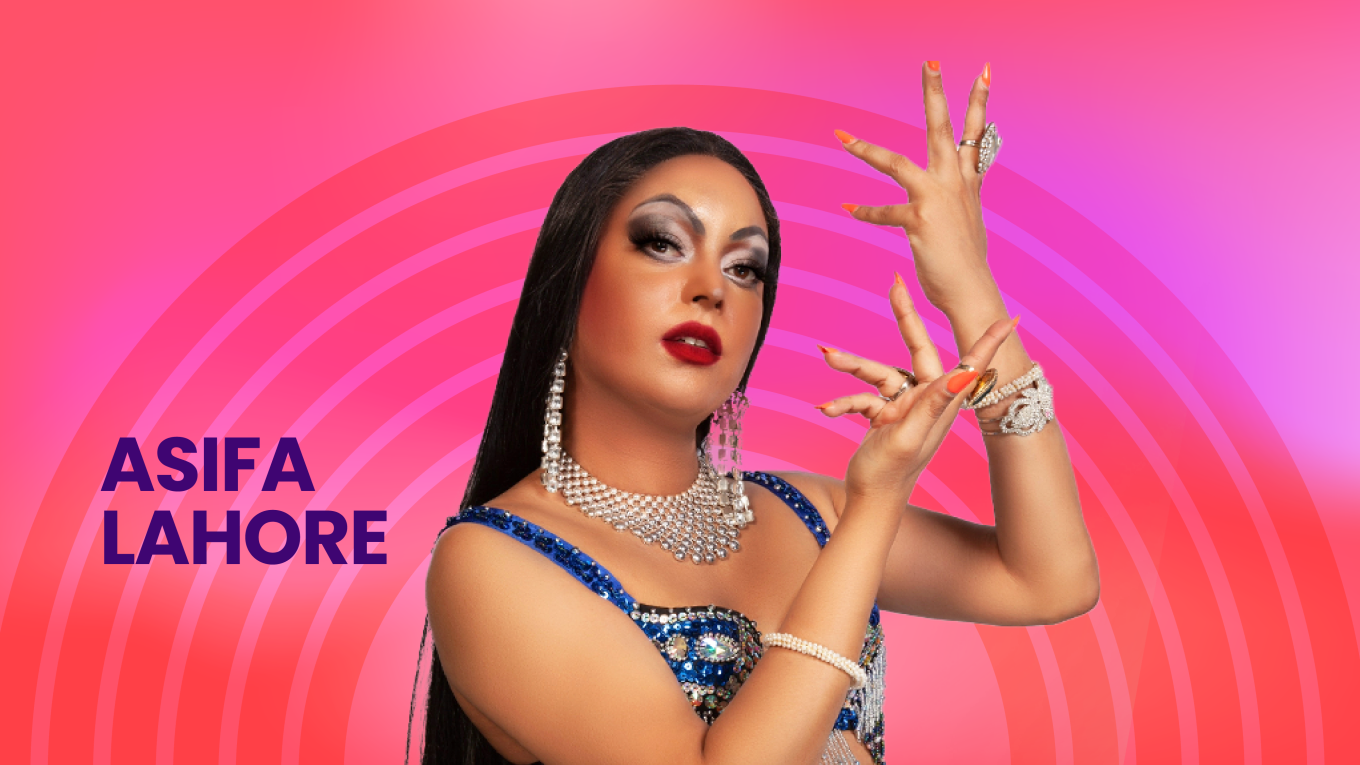
Asifa Lahore (she/her), United Kingdom
Asifa Lahore calls herself “Britain’s first out Muslim drag queen.” She was born and raised in London, while her parents are from Pakistan. Her father is from Lahore, Pakistan’s second-largest city.
“I embody all the stereotypes of what it means in the modern world to be Muslim, South Asian, British, Pakistani. I cast myself as a very intersectional person because I sit on the boundaries of so many identities. … So growing up, I felt really ashamed and guilty about having all of these identities, and I always felt I had to give one up for the other.”
Lahore said that this changed by the time she started her drag career.
“I said to myself, ‘I'm unapologetically going to be myself. I'm going to let all my identities hang out, and I don't care,’” Lahore said. “So my act consists of rainbow burqas to Union Jack miniskirts to high fashion.”
Drag means many things to different people, Lahore said.
“I think, for me, it's about full-blown self-expression,” Lahore said. “It's about releasing my authenticity, my talents, and just wanting to be onstage and perform, whether that’s singing, whether that's doing comedy, whether that's dancing very badly, whether it's doing dramas or films or whatever. … It allows me to fully express myself beyond all boundaries without any obstacles. And I just love to entertain and put a smile on people's faces.”
Lahore is on the blind spectrum and said that the drag community should acknowledge disability as an identity and work with disabled performers to make spaces more individually accessible.
According to Lahore, trans people are being targeted by right-wing politicians in the UK.
“We're being vilified because there's an election around the corner, and we can be used as political pawns to actually divert attention away from the matters that really matter,” Lahore said. “So, for example, in the UK, the cost of living or child poverty.”
Lahore has engaged in activism from television debates to social media campaigns. Drag boldly challenges the status quo, according to Lahore.
“I think if activism is to make its mark … drag has definitely shown over the years that it really gets the message across. … I'm proud to be a drag artist, and I'm proud of all the drag artists before me, and those yet to come that will move the world forward and change the world.”
Lahore said that drag has taught her to be more authentic.
“Life isn't always rainbows and flowers,” Lahore said. “There are really hard times and hard decisions for a person to make. But as long as it comes from a place of authenticity, creativity, and fun, that's important. Let's not forget that life needs to be fun because there's so much out there in the world right now. And, you know, with a sense of joy and fun, we can get through it all.”
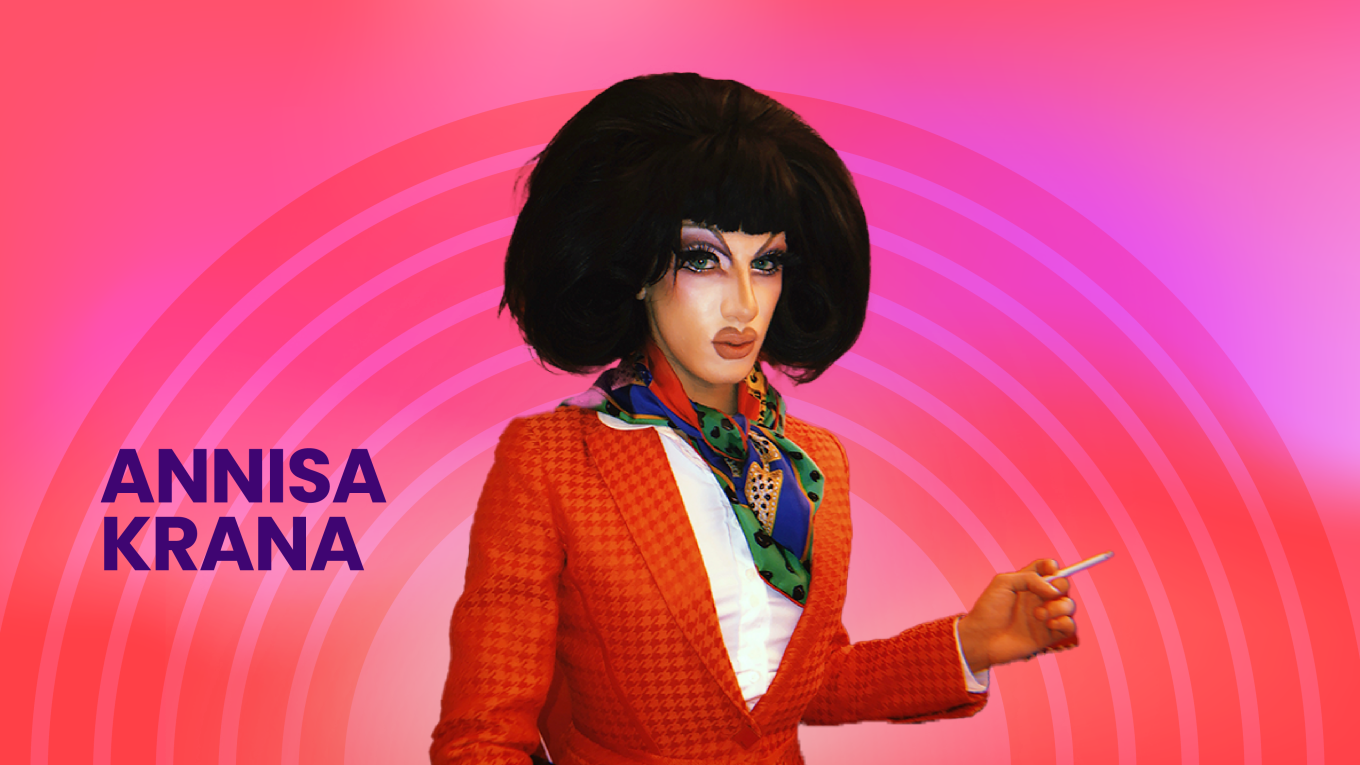
Anissa Krana (they/them,she/her), Lebanon
Krana is a drag queen and activist from Lebanon. To Krana, drag is meaningful in many ways.
“It's a way to fight back and fight for your rights,” Krana said. “And at the same time, to help people, educate them about a lot of topics.”
Krana said that many topics are considered taboo in Lebanese society and are therefore not often discussed, including rape, suicide, self-harm, drug addiction, and sex in general. Krana has done drag performances about these kinds of taboo topics to encourage discussion and education about them.
“I did once a performance about rape, and about my personal experience with rape, and how I dealt with it. … When I first started performing, few people came to me, and they were like, ‘I'm so thankful that you spoke about that because I never knew how to deal with my own issue with that topic specifically,’” Krana said.
As an activist, Krana has worked with Lebanese organizations like Helem, Skoun, and Embrace. According to Krana, there are few queer-friendly spaces in Beirut, and being gay is criminalized. In general, drag performers are trying to push for the safety of the LGBTIQ community, Krana said.
“I think that's the first and most important thing,” Krana said. “For you to be and feel safe in your own country, in your own home.”
Krana said that for them, drag is like therapy.
“I found that this is my way to deal with my problems. This is my way of being in peace with all the things that I've been through,” Krana said. “And that, I think, is the best thing that I could ever discover about myself, and that's the best gift drag gave me.”
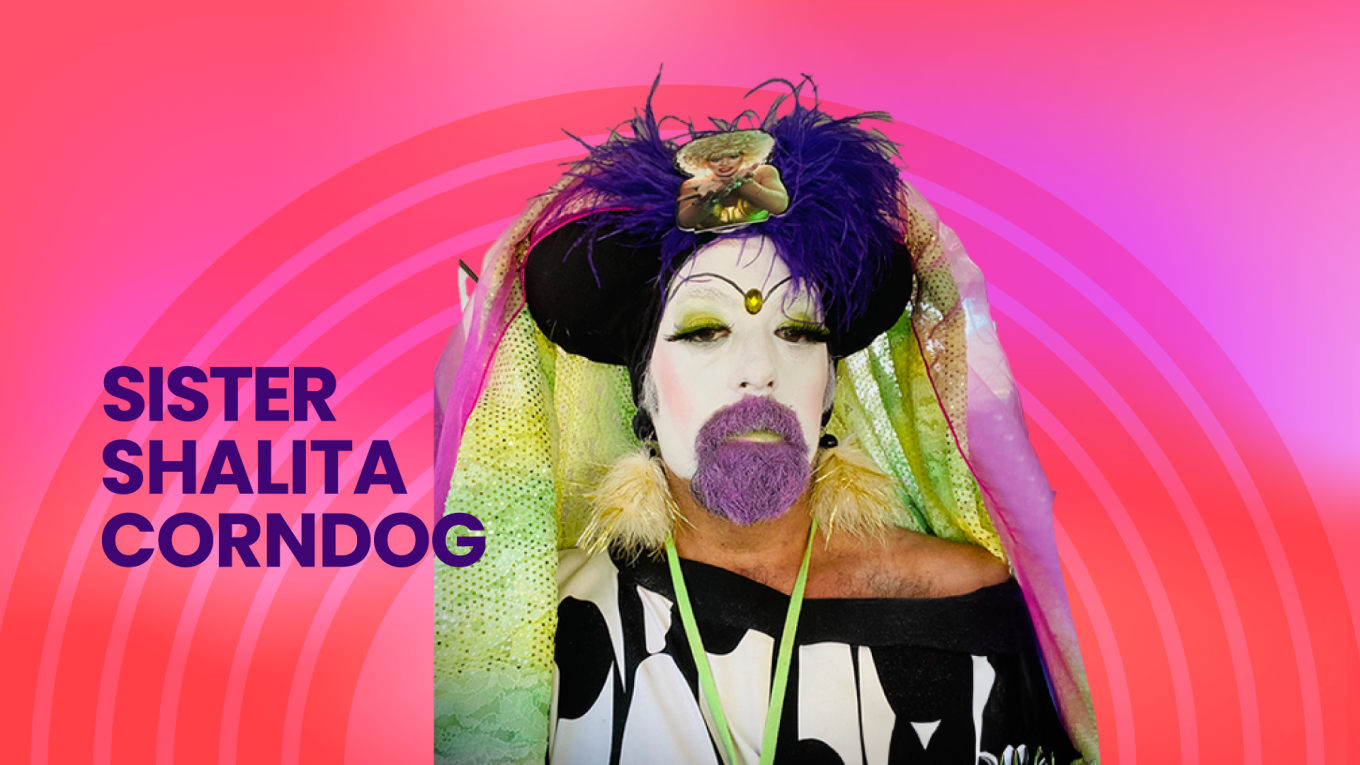
Sister Shalita Corndog (she/her), United States
Juliano Innocenti, who lives in San Francisco, is a psychiatric nurse practitioner and a board member at large of the Sisters of Perpetual Indulgence. He performs under the drag persona Sister Shalita Corndog.
What is it like being a Sister? In Corndog’s words, “glorious.”
“When I start putting on my white face, Juliano fades. Shalita starts to be born. Shalita is just pure, innocent, compassionate love and light. She is pure joy,” Corndog said. “And when she comes to life, everyone around her comes to life.”
Corndog first saw the Sisters at a protest she attended when she was 13 or 14. According to their website, the Sisters have engaged in activism since their foundation. Corndog’s HIV/AIDS activism goes back many years.
According to Corndog, becoming a member of the Sisters involved attending meetings, participating in and throwing events, and doing a “novice project.” The novice project involved having a sit-down dinner with the Sisters, where she sang to them and asked older Sisters to share pieces of wisdom.
According to Corndog, one of the biggest misconceptions about drag artists is that they are the characters they present as.
“If people took the time to know us or find out who we are and what we’re about, it would probably align with a lot of the values and morals that we as human beings typically share, no matter what your political background is,” Corndog said.
Sister Shalita Corndog describes herself as very religious.
“I use my belief in Jewish mysticism to guide me in everything that I do. … I strive to live my life from a place of really just the two divine laws that are given to us, which is to love one another and to not judge,” Corndog said.
Corndog said that she and many other Sisters make a point to recognize people who are socially marginalized and bring them to the center.
“When Shalita Corndog is up and out, people notice her and listen to her, so drag enables me to become a voice for those without one,” Sister Shalita Corndog said. “And that is a very powerful tool.”
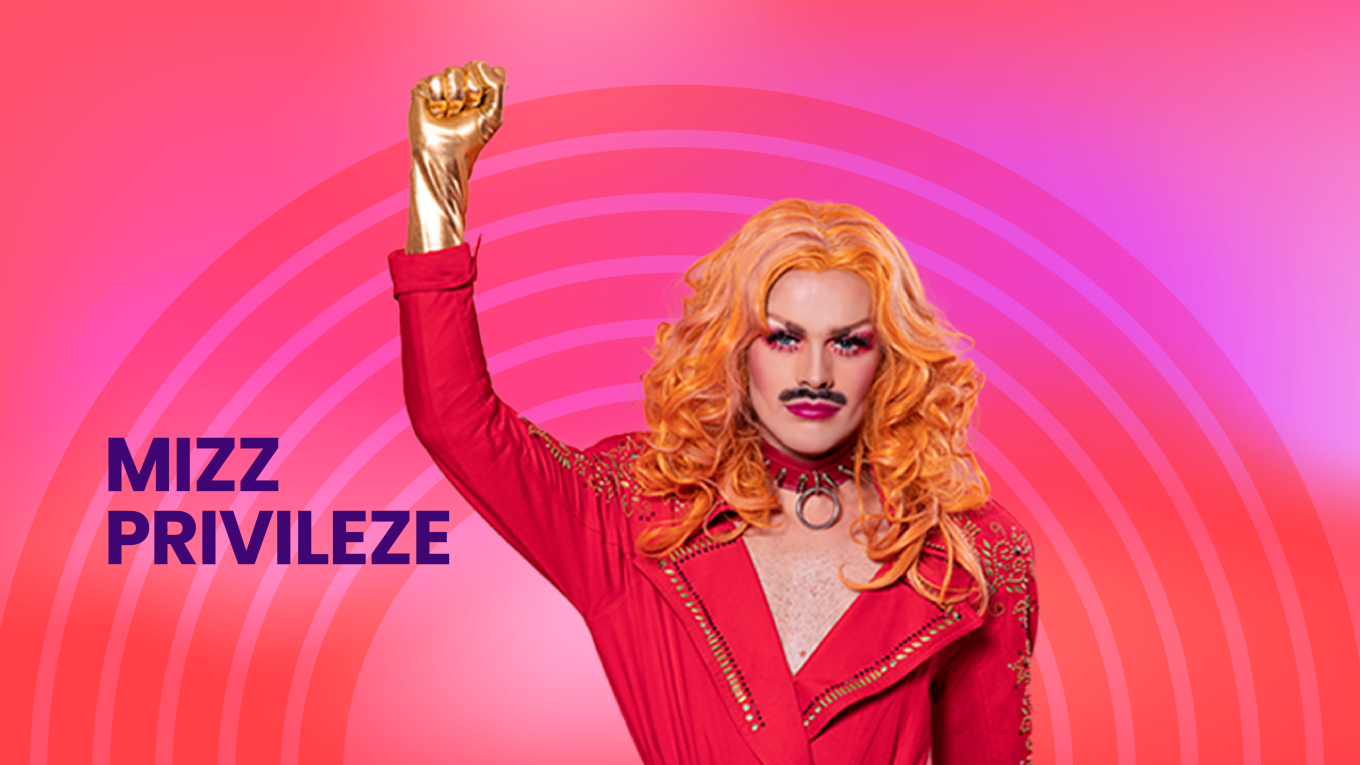
Mizz Privileze (they/them), Denmark
Mizz Privileze is a drag queen and activist living in Copenhagen, Denmark. They began doing drag in 2018. One year later, they were in the finale of “Danmark Har Talent,” Denmark’s Got Talent competition.
“It just highlighted for me why it's so important to have queer representation in the media, in the television. And not just on a drag program like Rupaul’s Drag Race, but on a mainstream program that you're watching with your family on a Saturday evening eating popcorn,” Privileze said. “I actually had a lot of messages from adults, parents and young people who told me that watching my performance made them come out that night to their parents.”
According to Privileze, the political climate around drag and trans rights has become increasingly polarized in Denmark.
“We're in this gray area right now, I would say where there's a lot of hate, but there's also so much support and love,” Privileze said. “But there's also, I call it, the lie of equality. When I do my lectures, we have this picture of Denmark that we're like the happiest nation in the world. … And that makes it actually quite hard for activists like me to be like, ‘Sorry, but not everyone here is happy. The suicide rate is enormous for trans youth. We're still facing hate crimes every day.’”
Privileze said that they and their friends have experienced hatred while in drag.
“I mean, people take my wig off and laugh at me, or taxi drivers who don't want to drive me. … I've had people yell at me. But I've also had friends in drag who've … experienced various different sorts of violence,” Privileze said.
Privileze said that is part of why they helped create an organization, Lev og Let Leve, that works toward eliminating hate crimes in Denmark. According to Privileze, this work contributed to Denmark changing its hate crime laws in 2022 to also protect trans people and drag performers.
“For me, drag has always been political,” Privileze said.
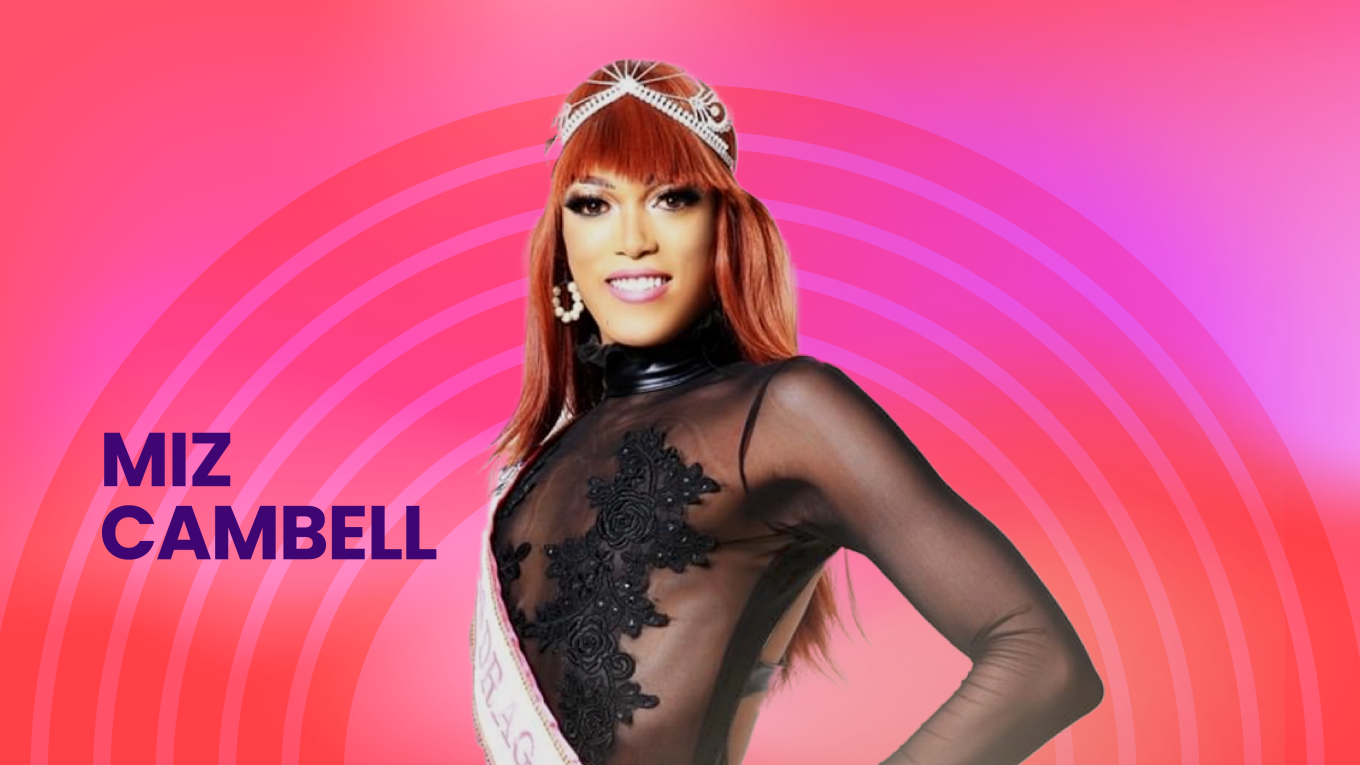
Miz Cambell (she/her), South Africa
Miz Cambell is a drag artist and pageant queen from Johannesburg, South Africa, who won the Miss Drag South Africa competition in 2020, 2021, and 2022.
Cambell said she makes ninety percent of her drag clothes and credited her grandmother, a seamstress, for some of her creativity and sewing skills.
“My drag is just a love letter to the women that were in my family and the women I used to idolize on TV,” Cambell said.
According to Cambell, Miss Drag South Africa’s ethos is “drag with a purpose.” Cambell helped create a feeding kitchen as a part of an initiative for Miss Drag South Africa, which she continues to oversee with her parents. She has also worked with organizations like the Caitlin Douman Foundation, which supports disabled people in Eldorado Park, and taught robotics, math, physics, and science through the Malapa Motsetse Foundation.
For Cambell, doing drag has helped her be in touch with both her masculine and feminine sides as a nonbinary person.
“It's your sort of vision on how you see masculinity, how you see femininity, how you see the male form, how you see the female form,” Cambell said. “So I tried to make sure that I'm emulating something unique and something that you can embrace.”
Cambell said that drag can be an eye-opener to anyone wanting to find themselves.
“A lot of the time, you've got to put yourself out into different circumstances to see what the outcome is going to be. Because you never know unless you try. … Drag really gives you the opportunity to be free,” Cambell said. “And to really embrace what makes you unique as a creative individual.”

Take Action
When you support our research, you support a growing global movement and celebrate LGBTIQ lives everywhere.
Donate Now